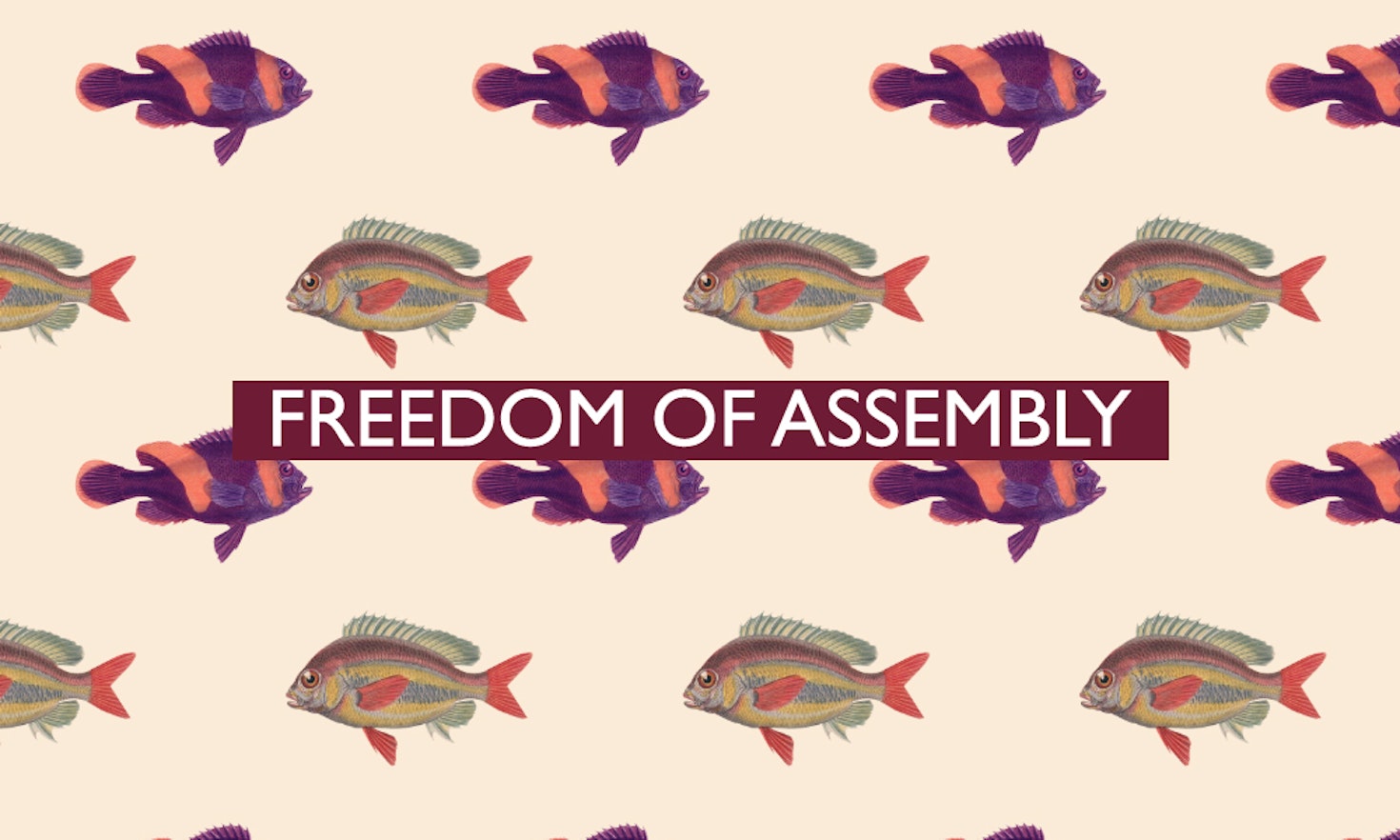
The EU and Swiss (dis)agreement: Is a Swixit in sight?
 Alessia Setti
Alessia Setti
In some corners, EU-Europe has the reputation of being nothing more than a playground for business interests.[1] If that was the case, EU law would clearly prioritise the common market over human rights. Does it? Well, let’s examine a test case.
In 2003, the EU Court in Luxembourg had to decide whether to give preference to the free movement of goods, or, the freedom of assembly. On one side stood the transit lobby, representing over 6.000 of the lorries that, on an average day cross the Brenner Pass – the most important north-south-connection in the EU common market. On the other stood the interest of the local population, who suffer from the increasing air and noise pollution alongside the highway. The traffic and pollution led the local inhabitants to organise a demonstration on the Brenner highway. The demonstration – carried out with permission of the Austrian government – caused the closure of the essential EU transit route for four days. Quite a blow to the common market.
What arose in Luxembourg’s EU Court was the question of how “to reconcile the requirements of the protection of fundamental rights in the Community with those arising from a fundamental freedom” specifically for the example of the free movement of goods. Not a single hint was given to any automatic preference of the economy over fundamental rights. To the contrary, in conclusion the Court stated that Austria was right to prioritise human rights over the common market because an outright ban on the demonstration would have constituted unacceptable interference with the fundamental rights of the demonstrators to gather and peacefully express their opinion in public.[2]
The Charter right in action
Very recently, the EU Court, underlined that the right to freedom of association “constitutes one of the essential bases of a democratic and pluralist society, inasmuch as it allows citizens to act collectively in fields of mutual interest and in doing so to contribute to the proper functioning of public life”.[3] The case concerned the so-called “Transparency Law” adopted by the Hungarian Parliament in 2017. The law basically imposed a duty to register and to provide the name of donors and the amount received on NGOs receiving funds from abroad. The law also obliged these organisations to state, on their homepage and in all their publications, they are an ‘organisation in receipt of support from abroad’. The Court found that these measures limited Article 12 of the Charter as they rendered the operation of these NGOs, that were singled out by the law, significantly more difficult.
The case shows the relevance of Article 12 for civil society organisations which nowadays often face the phenomenon of a “shrinking civil space”.[4] It is therefore important that the Charter provides in Article 12 everyone with the entitlement to “freedom of peaceful assembly and to freedom of association at all levels, in particular in political, trade union and civic matters, which includes the right of everyone to form and to join trade unions for the protection of his or her interest”.
Two examples of how the EU legislator refers to trade union rights[5]:
|
What do the constitutions of the Member States say?
All constitutions recognise the right of association and assembly. However – unlike the Charter text[6] – for approximately 10 Member States, the wording of the constitutions presents these rights as citizens rights.[7] Some constitutions do explicitly mention certain limitations to the rights of association and assembly.[8] For instance Article 44 (2) of the Bulgarian constitution states that organisations’ activities shall not be “contrary to the country’s sovereignty and national integrity, or the unity of the nation, nor shall it incite racial, national, ethnic or religious enmity or an encroachment on the rights and freedoms of citizens” and “no organization shall establish clandestine or paramilitary structures or shall seek to attain its aims through violence”.[9] The Italian and the Spanish constitutions also exclude “secret associations”.[10]
Just as the Charter does, the constitutions of many Member States explicitly refer to the right to form trade unions.[11] A handful of constitutions explicitly provide for a right to strike[12] and the same holds true for the use of the term “demonstration”[13] or the explicit possibility to limit rights of persons belonging to the army[14]. The Danish constitution deals with the event of a riot.[15] Finally, just as the Charter does for the EU level, the constitutions of Bulgaria, Czechia, Estonia, France, Germany, Hungarian, Italy, Lithuania, Romania, Slovakia, Slovenia and Spain deal with (the right to form) political parties.[16]
So what?
Just as with other ‘freedoms’ also Article 12 reflects a human right entitlement as it emerges from the Member States’ traditions and the European Convention on Human Rights. What the Charter adds to the text of the latter is its second paragraph stating that “[p]olitical parties at Union level contribute to expressing the political will of the citizens of the Union”.[17] While not a fundamental rights entitlement in itself, this provision reminds us of the relevance of political parties for upholding our shared values, in particular those of our fundamental rights. It is in this regard noteworthy that the EU regulation[18] ensuring that only European political parties and foundations receive EU funds who comply with these values has, so far, never been used.[19]
Interested in knowing more? Well, here you are: ‘All EU-r rights‘, stay tuned!
 |
Gabriel N. Toggenburg is an Honorary Professor for European Union and Human Rights Law at the University of Graz, Austria. He worked as a Senior Researcher for Eurac Research in Bolzano/Bozen (Italy) from 1998 to 2008. Since 2009, he has been working for the European Union. All views expressed are his own and cannot be attributed to his current or former employers. His blog series “All EU-r rights” published on EUreka! aims at making the EU Charter of Fundamental Rights better known. He is grateful for the honour to have every blog entry introduced by a piece of art by Miloladesign. An annotated list of all Charter rights is available here. |
[1] See G.N.Toggenburg, Das (angebliche) Menschenbild der Europäischen Union: vom Paradoxon der EU-Kritik und anderen Unschärfen, in EALIZ (ed.), Der Wert des menschlichen Lebens im 21.Jahrhundert oder Zu den Grenzen menschlicher Verfügungsmacht, Waidhofen 2010, 99-119.
[2] CJEU, case C-112/00, 12.6.2003.
[3] CJEU, case C-78/1, 18.6.2020. Para 112.
[4] See e.g. FRA, Civil society space: Views of organisations, Conference Paper, November 2018.
[5] The relevance and impact of Article 12 in the context of trade union law is mixed. And the EU competences are limited (under “social policy” Art. 153 (5) TFEU states: “The provisions of this Article shall not apply to pay, the right of association, the right to strike or the right to impose lock-outs”). See on this blurred picture and the related case law Filip Dorssemont, Article 12 (1), in Steve Peers et al (eds.), The EU Charter of Fundamental Rights, Oxford, 2014, pp. 341-366. He argues that an accession of the EU to the ECtHR would shift the balance between economic freedoms and relevant social rights towards the latter. See also Article 28 of the Charter.
[6] Note however, that also in the European Convention drafting, the Charter this was initially up for discussion – the first drafts established the right as a citizen right. See Norbert Bernsdorff, Art. 12, in J. Meyer and S. Hölscheidt (eds.), Charter der Grundrechte der Europäischen Union, 5th edition, 2019, pp. 318-326, at 320.
[7] Art. 12 of the Basic Law on the General Rights of Nationals, Art. 26 of the Belgian constitution, Art. 43 (1) and Art. 44(1) of the Bulgarian constitution, section 78 of the Danish constitution, Art 8(1) and Art. 9(1) of the German constitution, Art. 11 (19 and Art. 12 (1) of the Greek constitution, Art. 40.6.1. and Art. 40.6.2. of the Irish constitution, Art. 17 and Art. 18 of the Italian constitution, Art. 35 and Art. 36 of the Lithuanian constitution, Art. 45 and 46 of the Portuguese constitution.
[8] Note that in accordance with Article 52(3) of the Charter, limitations on Art. 12 of the Charter may not exceed those considered legitimate by virtue of Article 11(2) of the ECHR.
[9] For more generic references to the constitutional order see Art. 21 (4) of the Cypriot constitution or Art. 48 of the Estonian constitution.
[10] Art. 18 of the Italian and Section 22 (5) of the Spanish constitution.
[11] Art. 49 (1) of the Bulgarian constitution, Art. 21 (2) of the Cypriot constitution, Art. 27 of the Czech Charter, Art. 29 of the Estonian constitution, Section 13 of the Finnish constitution, Art. 9 (3) of the German constitution, Art. VIII (5) of the Hungarian constitution, Art. 40.6.1. of the Irish constitution, Art. 50 of the Lithuanian constitution, Art. 59 (3) of the Polish constitution, Art. 9 of the Romanian constitution, Art. 37 of the Slovak constitution, Art. 76 of the Slovenian constitution.
[12] Art. 27 (4) of the Czech Charter, Art. 29 of the Estonian constitution, Art. 59 (3) of the Polish constitution, Art. 37 (4) of the Slovak constitution, Section 28 (2) of the Spanish constitution, Art. 14 of the Swedish constitution. Note that the right to strike is laid down in Art. 28 of the EU Charter.
[13] Art. 43 (1) of the Bulgarian constitution, Section 13 of the Finnish constitution, Art. 42 (3) of the Maltese constitution, Art. 9 (1) of the Dutch constitution, Art. 39 of the Romanian constitution, Section 21 (1) of the Spanish constitution.
[14] Art. 17a of the German constitution, Art. 21 (5) of the Cypriot constitution, Art. 27 (4) of the Czech Charter, Art 40 (3) of the Romanian constitution, Art. 37 (4) of the Slovak constitution, Section 28 (1) of the Spanish constitution.
[15] Section 80 of the Danish constitution states: “In the event of riots, the armed forces may only take action, if they are attacked, after the crowd has been called upon three times to disperse in the name of the King and the law and such a warning has gone unheeded.”
[16] Art. 11 of the Bulgarian constitution, Art. 5 of the Czech constitution and Art. 20 (2) and (4) of the Czech Charter, Art. 4 of the French constitution, Art. 21 of the German constitution, Art. 48 of the Estonian constitution (restricts the right to belong to political parties to citizens), Art. VIII (3) and (4) of the Hungarian constitution (stating that parties may not exercise public power directly), Art. 49 of the Italian constitution, Art. 40 of the Romanian constitution (para 3 states that judges of the Constitutional Court, advocates of the people, magistrates, active members of the Armed Forces, policemen and others shall not join political parties), Art. 35 of the Lithuanian constitution, Art. 29 (4) of the Slovak constitution, Art. 42 of the Slovenian constitution, Section 6 of the Spanish constitution.
[17] See also Art. 10 TEU which states: “Political parties at European level contribute to forming European political awareness and to expressing the will of citizens of the Union.” See also Art. 224 TFEU (legislative competence).
[18] Regulation (EU, Euratom) No 1141/2014 of the European Parliament and of the Council of 22 October 2014 on the statute and funding of European political parties and European political foundation.
[19] See Meijers Committee, CM2005, EU-relevant “rule of law” protection instruments, procedures, policies and tools: an overview of available instruments June 2020.
This content is licensed under a Creative Commons Attribution 4.0 International license except for third-party materials or where otherwise noted.

 Alessia Setti
Alessia Setti
 Gabriel N. Toggenburg
Gabriel N. Toggenburg
 Elena Glockzin
Elena Glockzin